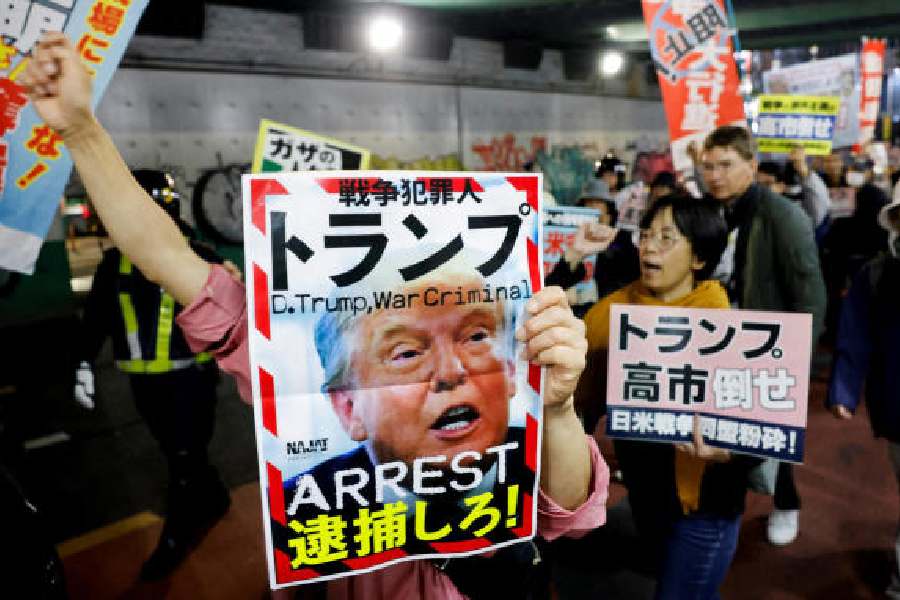The durability of the American experiment has been tested in the nine months since President Donald Trump's return to the White House, with institutions from Congress to the judiciary struggling or declining to check his aggressive attempts to flout the law and expand his power.
During Trump's latest trip abroad, on a six-day sojourn through Asia, he has launched, fists pumping, onto the world stage, chasing a trade deal with China and compelling several other Asian governments to sign economic agreements. Several of the leaders he will encounter this week are autocrats, or are presiding over vulnerable democracies. And some are open fans of his bulldozing approach to governing.
In Malaysia, Prime Minister Anwar Ibrahim praised Trump's willingness to flout security protocols by letting him ride along in the American presidential limousine shortly after Trump landed in Kuala Lumpur.
"We admire your tenacity and courage because the world needs leaders who promote peace strongly," Anwar told the President when the pair appeared together on Sunday in observance of a peace deal between Thailand and Cambodia. "And to achieve that, you have to break some rules, as you did today."
Throughout his stops in Malaysia, Japan and South Korea, Trump represents a shutdown federal government and an ever-deepening American political divide. His supporters at home give him high marks on his immigration crackdown and his pursuit of global peace deals. But Trump's approval rating has fallen, and most Americans believe the country is heading in the wrong direction, according to recent polls.
During his second term, Trump has laid out a set of beliefs that alarm those who study the decline of democracy, and his moves have been closely watched by many of the same governments he will interact with this week.
Trump thinks negative news coverage of him should be illegal. He has pressured the department of justice to carry out retribution against his political enemies. He has ordered the military to put boots on the ground in American cities and carry out missile strikes against people in the Caribbean. US citizens have been swept up in immigration raids and held without regard to their constitutionally protected rights.
"President Trump presents to the world an America under democratic pressure, and that's a very different image than what previous Presidents have projected," said Thomas Carothers, the director of Carnegie's Democracy, Conflict and Governance Programme.
In Trump's version of democracy, human rights, due process and freedom of expression are increasingly being treated not as inherent rights but as privileges subject to removal.
In Japan, the current stop on his trip, Trump's approach has helped to galvanise a Right-wing movement focused on nationalism, economic populism and a distrust of foreigners. The election this month of Sanae Takaichi, the first woman to serve as Prime Minister, in some ways reflects that shift.
With Trump's attacks on free speech and human rights in recent weeks, many in Japan wonder if the US will continue its traditional role as a beacon of democracy.
"We have always seen the United States as the real teacher of democracy," said Mieko Nakabayashi, a political science professor at Waseda University in Tokyo. "Trump is now showing us the limits of that ideal."
Unlike his American predecessors, Trump is not even pretending to tout the benefits of democracy as he travels in Asia. Nor does Trump see the US relationship with China as representative of an existential battle between the ideals of democracy and the spectre of growing global authoritarianism.
As he pursues trade deals with a string of countries he has strong-armed with aggressive tariff policies, he is keeping his sights set on China, a country that has not yet capitulated to his demands. Trump noted this week that his tariff on Chinese goods was set to rise to 157 per cent on November 1, just days after he and Xi are scheduled to meet.
"When President Trump sees himself together with President Xi, he doesn't see democracy versus autocracy in the room," Carothers said. "He sees two competing economic systems."
New York Times News Service










